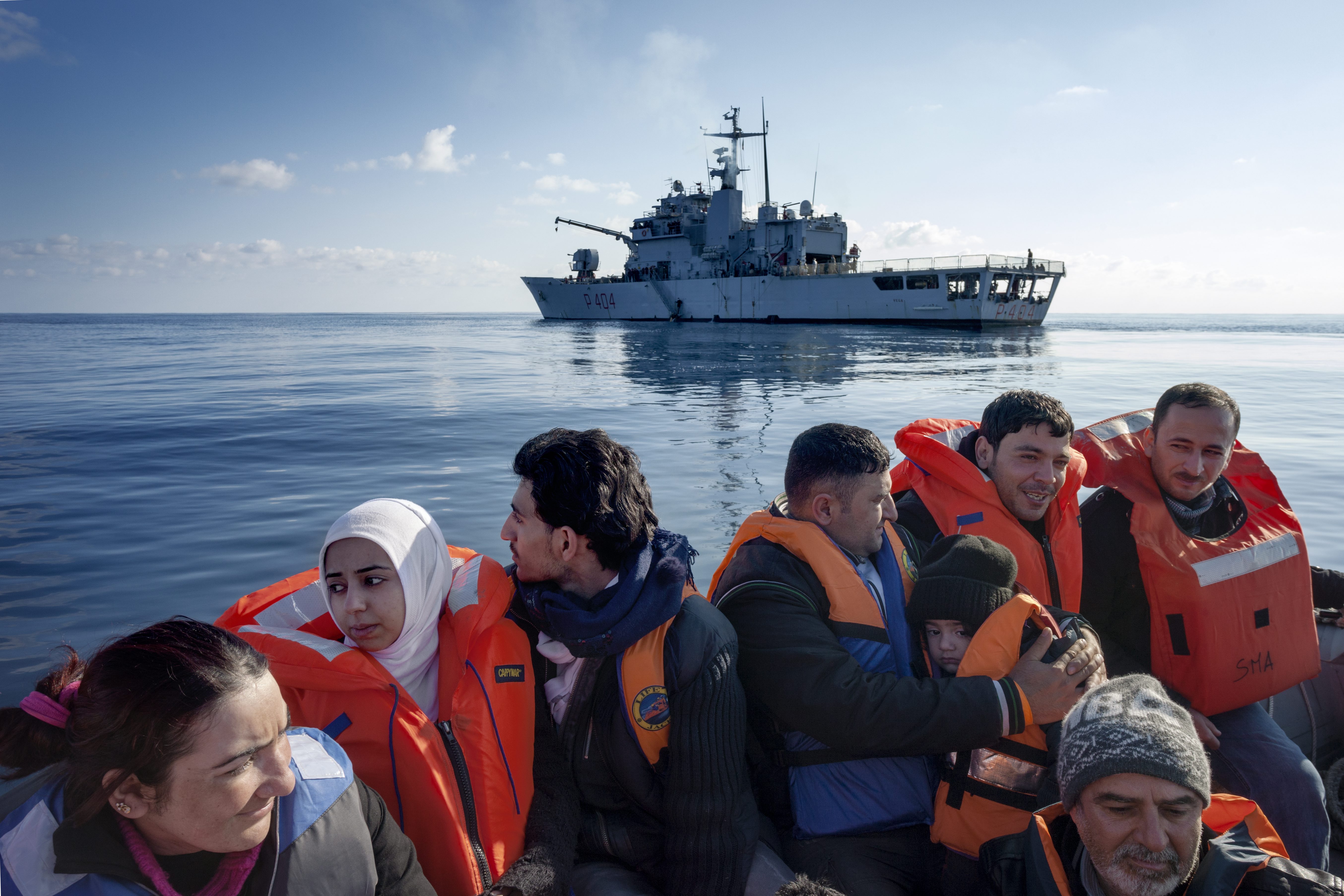Caribbean conundrums as UNHCR strives to protect refugees
Caribbean conundrums as UNHCR strives to protect refugees

MIAMI, United States, November 18 (UNHCR) - With its hundreds of secluded islands surrounded by azure seas, the Caribbean attracts not only tourists but also ruthless opportunists. Smugglers, peddling their services to migrants sold on the dream of finding a better life in the United States, keen to turn a quick profit regardless of the human cost.
For these unscrupulous gangs, nothing is easier than dumping an unsuspecting Asian refugee on a small Caribbean island state and telling him he is near Canada, or telling a Middle Eastern refugee he is already in Florida.
Days or even weeks may pass before the bewildered migrants and refugees work out exactly where in the world they are, by which time - since the fee is nearly always paid up front - there is little they can do. If they have avoided ending up adrift in a leaky boat with no food and water, that is already a bonus.
UNHCR has set up a system, using volunteers in 10 key Caribbean locations, to try and provide protection for such people of concern to the agency among the thousands every year who take the northward passage towards the United States along overlapping, winding maritime routes. They will be among the
topics to be discussed at a regional conference on mixed migration and refugee protection, opening on Thursday in the Costa Rican capital of San José,
Most of those heading northwards are from within the Caribbean region or from South and Central America, but a smaller number arrive from other continents, including West Africans crossing the Atlantic, and refugees fleeing from conflict or persecution in places like Iraq, Somalia and Sri Lanka and trying to reach North America from the south.
During periods of political conflict or unrest in certain Caribbean states themselves, these figures have sometimes risen into the tens of thousands. US Coastguard statistics on the intercepted and returned only tell part of the story.
Nobody is keeping an accurate count of the number of people who succumb to storms and other hazards en route. In 2008 and 2009, more than 15 maritime incidents involving loss of life were recorded, with at least 150 confirmed deaths and some 120 more lost at sea, with women and children among the victims.
Dominicans, Cubans and Haitians consistently dominate the mixed flows of migrants and refugees heading north. But the dizzying variety of routes and transit points, and the growing diversity of nationalities involved, reveal a far more complex picture.
While the majority of those in transit are migrants, small numbers of refugees are mixed with them and the new arrivals are straining what are sometimes weak asylum systems. Reception facilities on the islands are geared more towards paying guests than responding to the needs of weather-beaten, dehydrated migrants. Language barriers and socio-cultural differences generate unfamiliar challenges for government officials and locals.
Refugees are as likely to find themselves intercepted, detained, presumed to be economic migrants and promptly deported as they are to be admitted to a national asylum system. And even for those few admitted, recognition rates in the Caribbean are uniformly low.
Under such circumstances, effective partnerships are essential to ensure minimum levels of protection for refugees. To this end, UNHCR has set up a network of honorary liaison volunteers to undertake essential protection work on a pro bono basis in 10 key locations around the Caribbean.
Hailing from all walks of life, these dedicated volunteers include the heads of national Red Cross societies, university lecturers and legal aid workers. They have been filling some of the gaps which UNHCR cannot hope to cover with its own small roving team operating out of Washington.
Partnership arrangements with non-governmental organizations in Belize, the Dominican Republic, Haiti, Jamaica and Trinidad and Tobago are another vital piece in the protection jigsaw that now extends across the Caribbean.
At the regional level, cooperation with the International Organization for Migration (IOM) on a seminar series on mixed migration and protection in the Caribbean has provided a platform for Caribbean states to exchange ideas on strengthening collaborative responses to migration, refugee protection and trafficking.
The regional conference in Costa Rica, meanwhile, will provide new opportunities for Caribbean states to interact with North American and Latin American counterparts facing similar challenges. The objective for all is to provide effective protection to refugees who arrive on their shores and humane solutions for thousands of migrant people.
By Grainne O'Hara in Miami, United States






